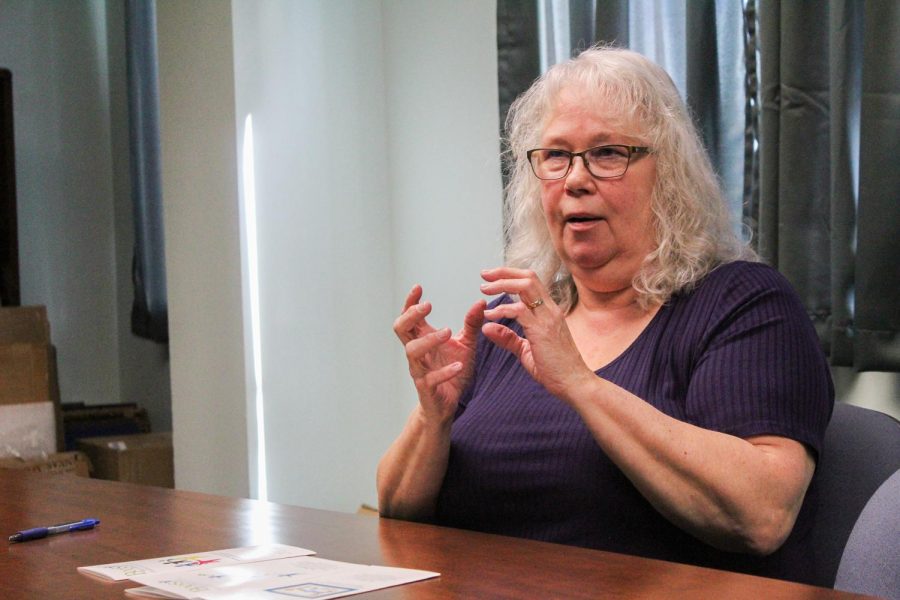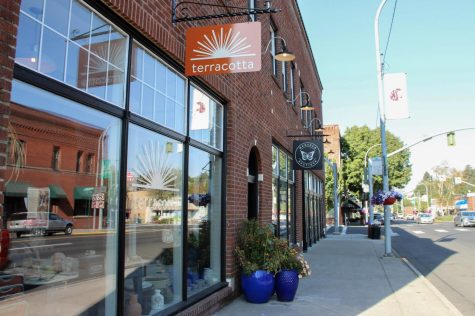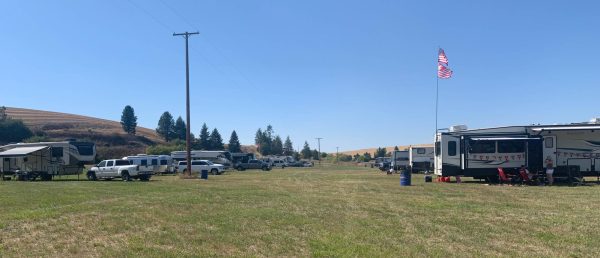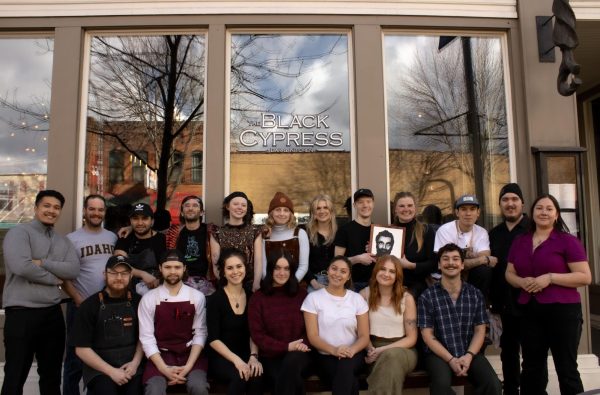Nonprofit provides employment support for adults with disabilities
Director of Employment Support Services says success rate of employment about 85 percent
Boost Collaborative Employment Services Director Teresa Driver describes how Boost’s services help those with disabilities find a way to enter or reenter the workforce on Monday morning at the Pullman Boost Collaborative Office.
March 12, 2020
Community integration is no small task for adults with disabilities, but Boost Collaborative’s Employment Support Services aim to make this task a little less daunting.
Teresa Driver, director of Employment Support Services, said the employment branch of Boost Collaborative starts with people ages 18 to 21, helping them transition into the working world after they graduate from high school. From then until retirement at age 64, Boost provides ongoing employment support including job training, resume-building and finding work.
“It is our goal for everyone to have competitive employment in the community,” Driver said.
While long-term support is common, she said, Boost also provides services for people in short-term vocational rehab. This may include people who have suffered from a recent accident or medical diagnosis which causes them difficulty in re-entering the workforce.
People with disabilities who take part in Boost’s vocational program go through a series of stages to determine their employment readiness, Driver said. If someone has never had a job, they may do a trial period, with Boost employees providing job coaching and community-based assessments.
While job training can take place in-house at the Boost office or at the affiliated Palouse Treasures, there are a number of local employers who partner with Boost Collaborative to take on employees. This includes Northside Dining on campus, the downtown catering service Oak on Main and the McDonald’s on Grand Avenue.
“Our position is just to help people with special needs get job experience,” McDonald’s area supervisor Brooke Marriott said. “Some train here, and some train for a while to move on to other jobs.”
Marriott said the restaurant usually has two or three Boost employees working there at a time. They go through the regular three-day job training alongside their individual job coaches, she said, so the coaches know what standards need to be met.
She said the business makes accommodations for employees who are unable to complete certain tasks, with personality taking a front seat in the hiring process.
“We’re just looking for somebody who wants to work and is excited to work,” Marriott said. “We look for those people who are excited to use their skills.”
Another service Boost provides, Driver said, is community inclusion. This program’s intent is to involve people with developmental disabilities under age 64 who, after a nine-month trial period, are unable to find ongoing employment. This service helps these people find connections and opportunities in the community with the deeper goal of finding employment better suited to their needs.
Boost also provides engagement services, she said, which allows retired people over the age of 64 to set goals for getting out into the community. This might include attending a senior lunch, she said, or getting involved with the public library.
“That just started [last year], and we’re really excited that we’re getting it up and running,” Driver said.
In 2017-18, Driver said Boost Collaborative had about an 85 percent success rate for getting people jobs.
“I think we’re very fortunate here in Whitman County,” she said. “We have a great, great many employers who understand the importance of integration, but they also understand that just because an individual has a disability doesn’t mean they’re not able to do a good job.”


















